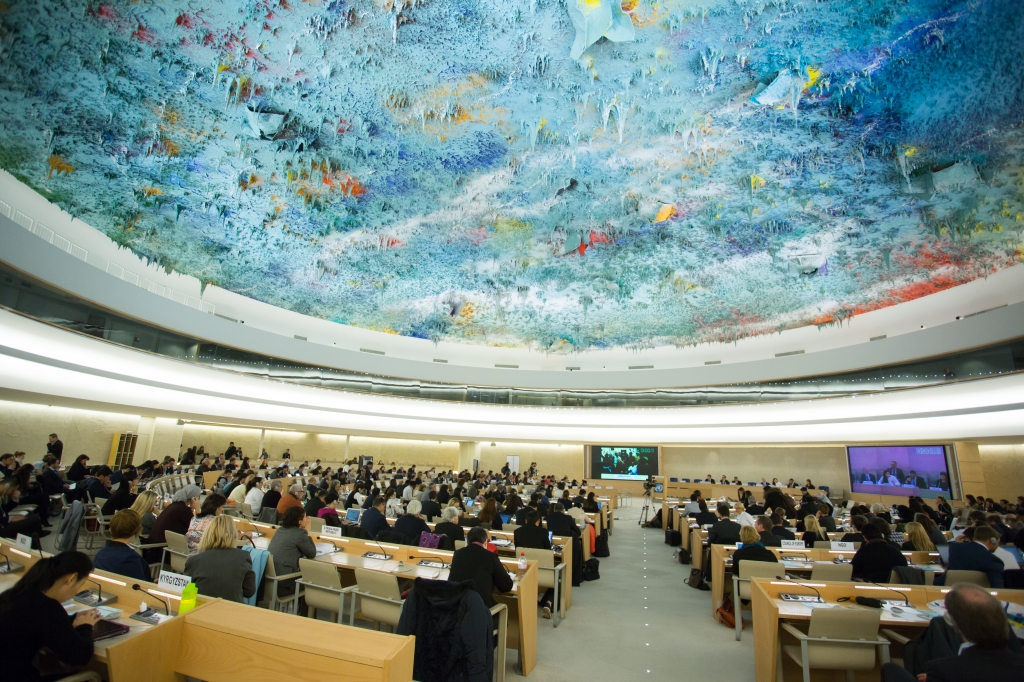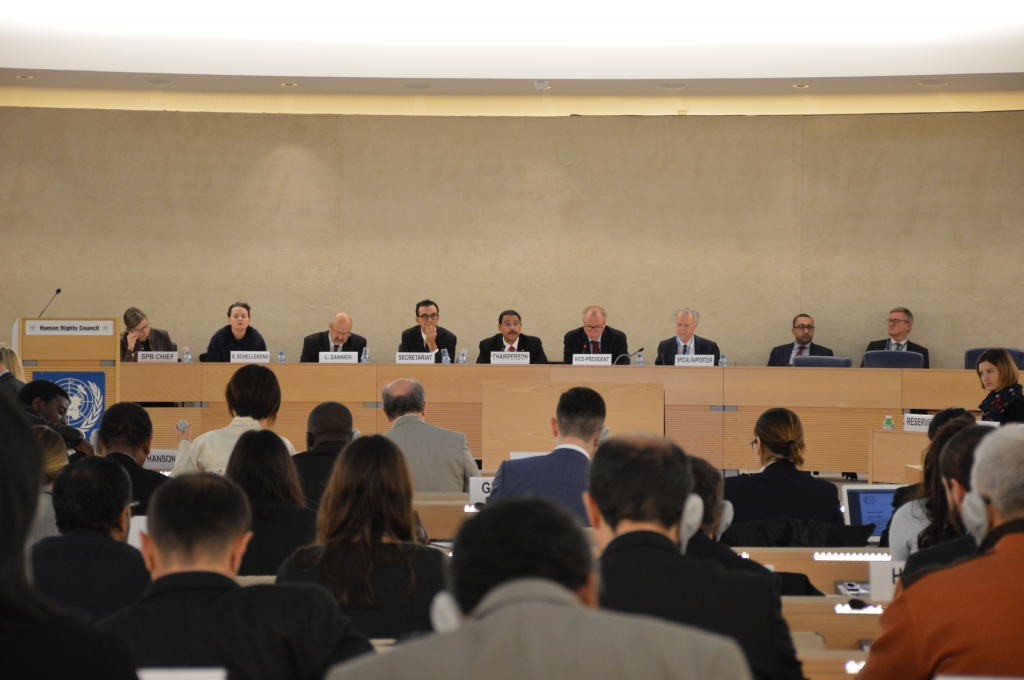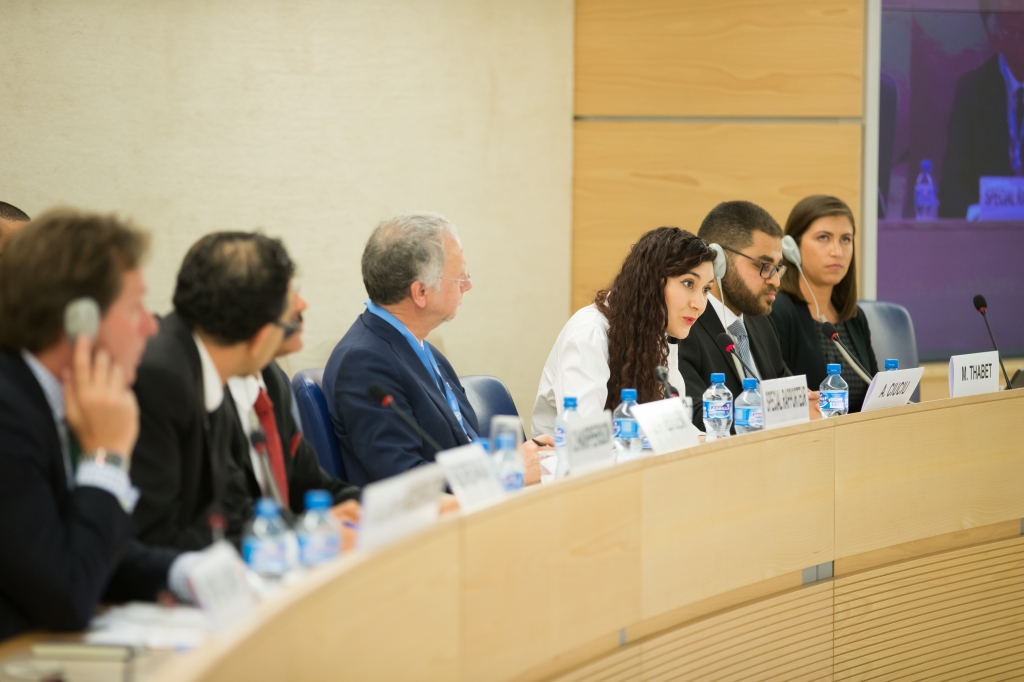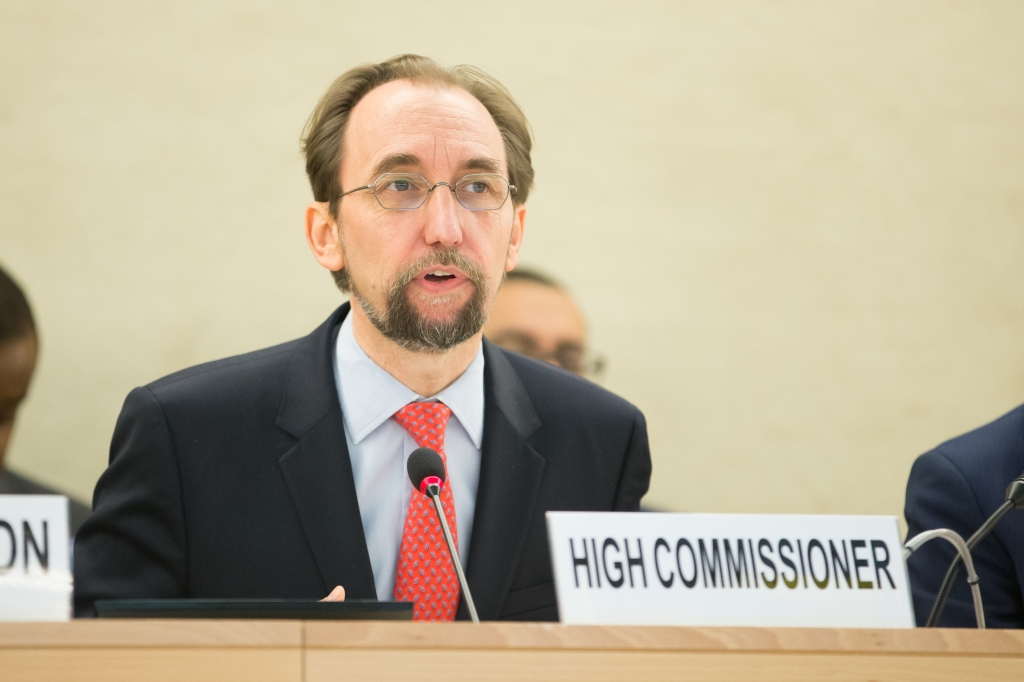Over 400 participants, including youth advocates and activists from minority backgrounds, other civil society representatives, as well as government and UN officials gathered at the 10th session of the Forum on Minority Issues from November 30 to December 1. Held annually in Geneva since 2008, the Forum provides a platform for advancing the implementation of the Declaration on the Rights of Persons Belonging to National or Ethnic, Religious and Linguistic Minorities and promoting dialogue and cooperation on issues pertaining to minorities. This year the Forum focused on the theme of “Minority youth: towards inclusive and diverse societies” and offered a platform to discuss the challenges and opportunities, as well as concrete recommendations and measures for engaging young people from minority backgrounds in advancing the development of more inclusive, sustainable and peaceful societies.
The Forum was chaired by Mr. Tarik Kurdi from the Republic of the Sudan, a retired international civil servant from the UN High Commissioner for Refugees. Mr. Kurdi opened the Forum together with the Vice-President of the Human Rights Council, Ambassador Valentin Zellweger from Switzerland, and the Special Rapporteur on minority issues, Dr. Fernand de Varennes. In his opening remarks, Dr. Varennes stressed that “minorities around the world are facing increasing obstacles, and even resistance, to the full recognition and respect of their human rights”, and that in order “to protect the rights of minorities, a great deal must change, and young people must be at the heart of these changes”.
The opening segment of the Forum on Minority Issues also saw the participation of two keynote speakers: Ambassador Lamberto Zannier, High Commissioner on National Minorities from the Organization for Security and Co-operation in Europe (OSCE); and Ms. Saskia Schellekens, Special Advisor to the UN Secretary-General’s Envoy on Youth, speaking on her behalf. In her address, Ms. Schellekens underscored that
“many minority youth face double discrimination, not only for being who they are in terms of their background, but also for their age”
Honored to deliver keynote address to 10th Session of the HRC’s #UNMinorities Forum obo @UNYouthEnvoy and to moderate panel on Inclusive Education to Empower Minority Youth #Standup4humanrights
ICYMIhttps://t.co/7UPh6SeXwUhttps://t.co/05o3dUYFd3 pic.twitter.com/g4TTX7tEKk
— Saskia Schellekens (@SaskiaSchellek1) December 4, 2017
During the two-day event, young activists of minorities from around the world shared their experiences and work in a set of panels and interactive discussions. These sessions were structured around four key thematic areas: inclusive education to empower minority youth, their participation in public life, opportunities and challenges offered by digital media technologies, and the role of minority youth as agents of change for peace and stability. Each of these thematic sessions was introduced by a set of expert panelists, including minority youth themselves, to highlight particular relevance of the topic to specific contexts. Ms. Schellekens moderated the discussion on inclusive education, which addressed the challenges of access to an education free of discrimination, and in one’s own language. The session also looked into the role of human rights education to further awareness of minority rights. Ms. Schellekens furthermore in her role as moderator stressed that “Young people everywhere, whether from minority or majority backgrounds, need to further be exposed to the benefits of inclusive education and the positive value of diversity”.
At the start of the second day of the Forum, the United Nations High Commissioner for Human Rights, Mr. Zeid Ra’ad Al Hussein, addressed the forum and underscored that
“minority youth are not a threat, they are under threat -they do not undermine social harmony and security, they enrich society with a diversity of outlooks, experience and skills”
The Forum’s deliberations and recommendations will be captured in a Report of the Chair that will be presented to the UN Human Rights Council at its 37th Session in March 2018.





